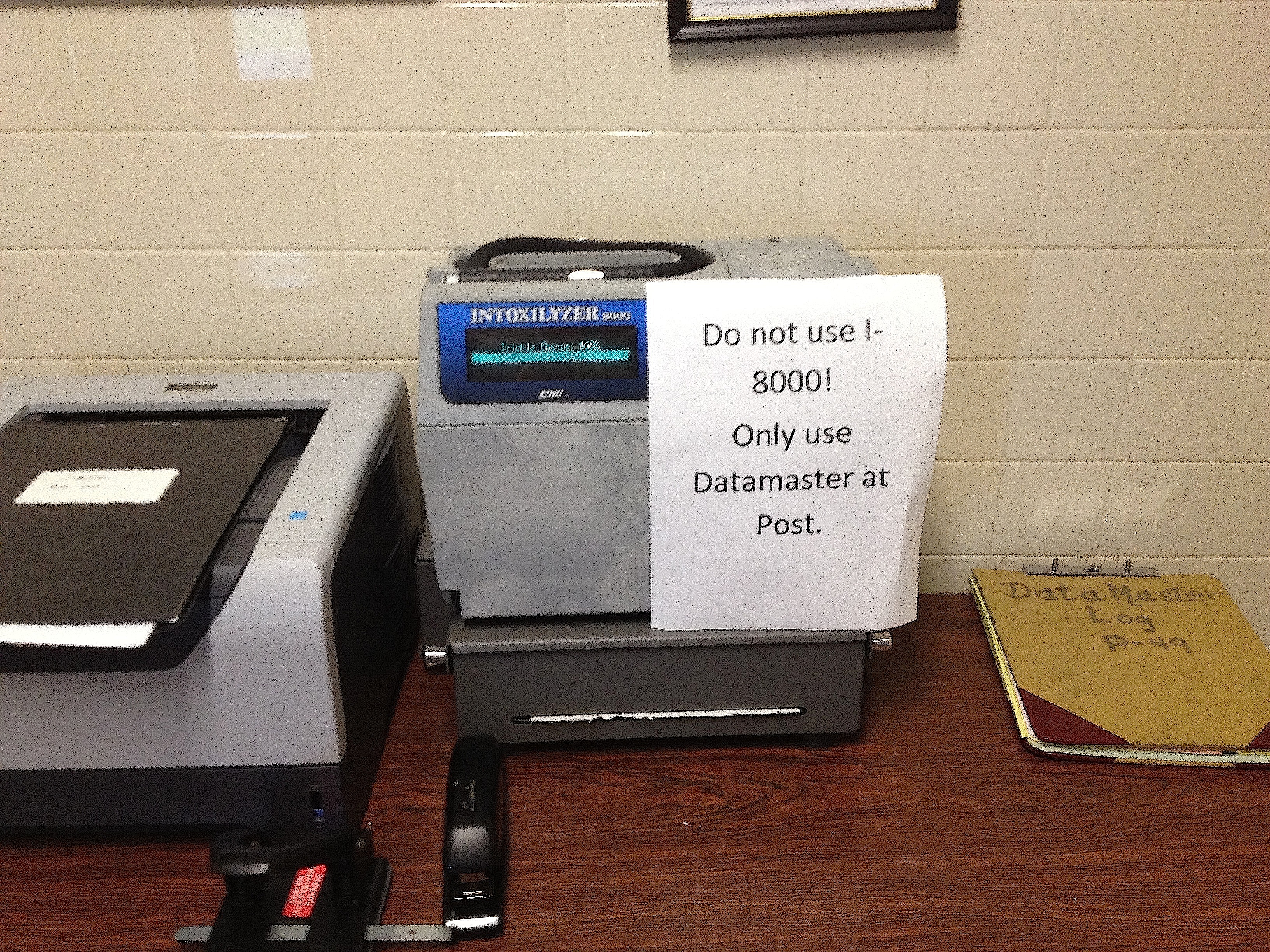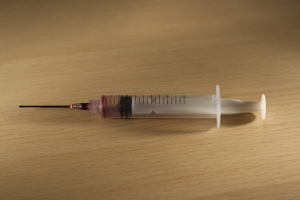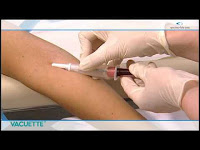 For the first time, an appellate court in Central Ohio addressed whether evidence from an Intoxilyzer 8000 is admissible in an O.V.I./D.U.I. trial. The court of appeals ultimately decided that the defendant is prohibited from challenging the general reliability of the Intoxilyzer 8000, so the results of that machine’s breath tests are admissible. The court’s opinion, however, contained language questioning whether that prohibition should continue to be the law in Ohio O.V.I. cases.
For the first time, an appellate court in Central Ohio addressed whether evidence from an Intoxilyzer 8000 is admissible in an O.V.I./D.U.I. trial. The court of appeals ultimately decided that the defendant is prohibited from challenging the general reliability of the Intoxilyzer 8000, so the results of that machine’s breath tests are admissible. The court’s opinion, however, contained language questioning whether that prohibition should continue to be the law in Ohio O.V.I. cases.
Articles Posted in DUI/OVI blood/breath/urine tests
Should Ohio Police Be Able to Draw Blood Against Your Will?

Trooper Mark Winder stopped Tyler McNeely for speeding and observed the usual trilogy of intoxication signs: odor of alcohol, bloodshot eyes, and slurred speech. Winder gave McNeely field sobriety tests and arrested him for driving while intoxicated. The trooper drove McNeely to a hospital and asked McNeely to give a blood sample. McNeely declined. Without obtaining or even seeking a warrant, the trooper had a lab technician take a blood sample from McNeely while McNeely was restrained. The blood sample was later analyzed, and it was determined that the concentration of alcohol in the blood was .154.
Intoxilyzer 8000 Challenges Continue
Previous posts in this blog discussed developments with the Intoxilyzer 8000 breath-testing machine. On May 30, 2011, the post summarized the Gerome case in Athens. In Gerome, the judge held the defendant is permitted to introduce evidence of factors affecting the breath test results. Another post reported the disappearing Intoxilyzer 8000 records maintained by the Ohio Department of Health. On June 11, 2011, this blog reported the judge’s decision in the Reid case in Circleville. In Reid, the prosecution did not present expert witnesses, and the judge concluded the machine’s results are not reliable enough to be considered as evidence. After the Reid decision, prosecutors have taken a couple different approaches with Intoxilyzer 8000 cases.
Rules Not Followed = Blood Test Thrown Out
 There are rules for blood testing, and they aren’t new. If the prosecution wants to admit a blood test as evidence in an Ohio O.V.I./D.U.I. case, the prosecution has to prove certain procedures were followed for the blood test. A few days ago, an Ohio court of appeals held that the procedures weren’t followed, so the blood test should have been thrown out in Statev. Ragle.
There are rules for blood testing, and they aren’t new. If the prosecution wants to admit a blood test as evidence in an Ohio O.V.I./D.U.I. case, the prosecution has to prove certain procedures were followed for the blood test. A few days ago, an Ohio court of appeals held that the procedures weren’t followed, so the blood test should have been thrown out in Statev. Ragle.
Intoxilyzer 8000 Records Disappearing In Ohio DUI/OVI Cases
The State of Ohio may be regretting its $6.4 million purchase of Intoxilyzer 8000 breath-testing machines. In State v. Gerome, the judge wrote a decision critical of the Intoxilyzer 8000 that stated the machine is “capable of producing an inaccurate result.” In State v. Reid, the judge decided the Intoxilyzer 8000 result was not even reliable enough to be admitted as evidence.
Blood Test Thrown Out In Ohio OVI Case Because Defendant’s Consent Was Invalid
Occasionally, evidence in Ohio O.V.I. (D.U.I.) cases comes from a blood sample taken at a hospital. When the blood sample is obtained in a hospital setting, issues arise regarding the admissibility of the blood test. One issue is whether the suspect’s consent to giving the blood sample is valid. For the second time in a year, a court of appeals has concluded that a defendant’s consent to a blood draw was not valid because it was not made knowingly and voluntarily.
Miami Cop Involved In Strange And Tragic Incident On ATV
In Miami, there’s nothing strange or tragic about a police officer riding down the beach on an ATV. What makes this incident strange is the on-duty officer is taking a female passenger on a joyride while he’s on duty. What makes this incident tragic is the officer plows into two pedestrians and severely injures both.
Ohio Judge Rules Intoxilyzer 8000 Evidence Inadmissible
The last post of this blog discussed the Gerome case in Athens, Ohio. In that case, which is still pending, the judge will make decisions about the reliability of the Intoxilyzer 8000 and whether a defendant must be given an opportunity to challenge the breath test’s general reliability at trial. In a similar case in Circleville, Ohio, the judge recently ruled that evidence from the Intoxilyzer 8000 is not even reliable enough to be introduced as evidence at trial.
Intoxilyzer 8000 Case May Open Door To Challenging Breath Tests In Ohio
In previous posts, this blog has discussed two separate but related issues. The post on May 3, 2010 explained that defendants in Ohio O.V.I. cases do not have the ability to challenge the general reliability of breath testing machines at trial due to the holding in State v. Vega. The post on May 29, 2010 described how the Ohio Department of Health purchased 700 Intoxilyzer 8000 breath testing machines and is implementing use of the machines throughout Ohio. This post ties together those two issues because a case in Athens County involving the Intoxilyzer 8000 may open the door to challenges regarding the general reliability of breath tests.
Should I Take The Breath Test In An Ohio OVI Case?
As a D.U.I. defense attorney, this is one of the most frequently asked questions I receive (second only to “how can you do that?”). The answer is surprisingly complicated: it depends on factors that include how much alcohol you drank, whether you are more concerned about the short-term or long-term status of your driver’s license, whether you have prior convictions, whether you’re on probation, and whether you have a commercial driver’s license.
 Columbus OVI/DUI Attorney Blog
Columbus OVI/DUI Attorney Blog

